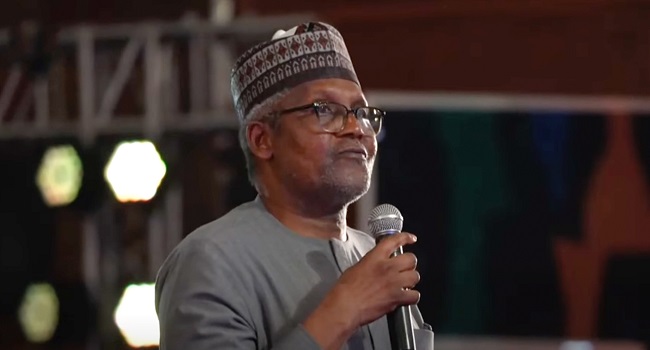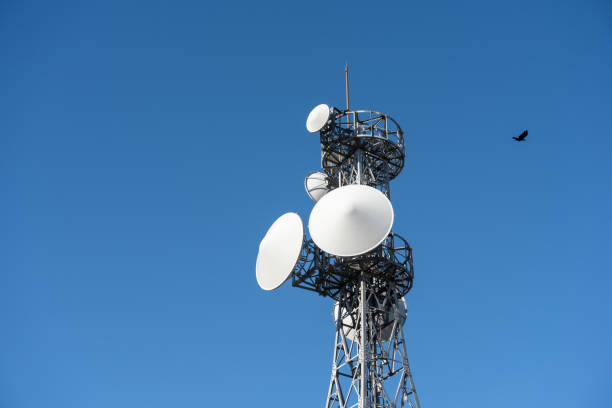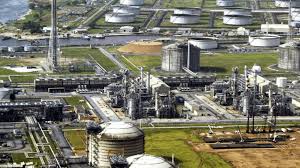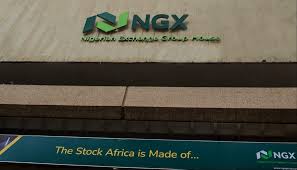Aliko Dangote doesn’t talk much, but when he does, even oil flows differently. And at the just-concluded West African Refined Fuel Conference in Abuja, Nigeria’s richest man came armed not just with figures, but with fire. The continent, he said, is bleeding — to the tune of $90 billion every year — all because Africa can’t refine what it produces.
Imagine cooking soup in your own kitchen but eating someone else’s stale takeaway every day. That’s how Dangote described Africa’s oil conundrum.
“We produce crude oil in abundance, but we export it raw, only to import refined fuel at higher prices and lower quality. That’s like growing your own yam and begging someone else to cook pounded yam for you,” Dangote lamented, drawing knowing nods and a few chuckles from the Abuja crowd.
The Irony of Oil Riches
Africa, particularly Nigeria, is rich in crude oil — pumping out about seven million barrels daily. Yet, it refines less than half of what it consumes. The result? A heavy reliance on imported fuel, much of it substandard, and in some cases, downright dangerous.
The figures are staggering. According to Dangote, over 120 million tonnes of refined petroleum products are imported into Africa every year. And the price tag? A jaw-dropping $90 billion. That’s more than the GDP of most African countries.
“Only about 15 per cent of African countries even have an economy worth $90 billion,” he said. “We’re basically exporting jobs and importing poverty.”
Toxic Fuel, Sweet Profit
And it’s not just any fuel we’re importing. Dangote didn’t mince words about the type of fuel flooding African markets — cheap, poorly blended, often toxic petroleum products that wouldn’t pass safety standards in Europe or North America.
Think about it. The same fuel that wouldn’t be allowed to power a tuk-tuk in London is fuelling buses, generators, and even ambulances across Nigeria and beyond.
According to Dangote, much of this dirty fuel is dumped by countries looking to offload products they can’t use themselves — and Africa, without strong regulation or local alternatives, has become the dump site.
Dangote’s Refinery: A Giant Leap, Many Hurdles
To change the narrative, Dangote built the world’s largest single-train refinery in Lagos — a project so big, it involved reclaiming swampland, constructing a seaport, laying millions of metres of cables and pipes, and even creating the world’s largest granite quarry.
At peak, 67,000 people were working on-site — 50,000 of them Nigerians. But it wasn’t a smooth ride. COVID-19 delayed progress by two years, and the exchange rate rollercoaster — from ₦156 to ₦1,600 per dollar — meant budgeting became a nightmare.
And even after conquering construction, the commercial headaches started.
“Despite producing crude oil, we sometimes have to import up to 10 million barrels monthly from the US and elsewhere. That makes no sense,” Dangote said, shaking his head.
Why? Because local suppliers prefer to sell to foreign trading companies, who in turn sell it back to Dangote — at a profit, of course.
Then there are the port charges, which he describes as “mind-boggling”. In some cases, the cost of moving fuel locally is more expensive than importing it from halfway across the world. And don’t even get him started on the regulatory red tape.
“Refiners in India, thousands of kilometres away, enjoy cheaper freight costs than us right here in Nigeria,” he said.
A House Divided by Standards
Another challenge? Fuel standards. What works in Nigeria can’t be sold in Ghana or Cameroon. Despite using similar vehicles and climate conditions, each country has different regulations, making regional trade unnecessarily complicated.
Dangote pointed out the ridiculousness of requiring diesel to function at 4°C in Nigeria, a country where even early mornings are warmer than that.
“Unless you’re planning to drive to Jos in December and sleep inside your tank, why do we need that kind of specification?” he joked.
These disjointed standards, he said, only benefit middlemen and foreign traders. For African refiners, it’s a logistical and financial nightmare.
The Russia Factor
To make matters worse, Africa is now being flooded with discounted fuel from Russia, some of which is reportedly substandard and blended just enough to bypass price caps — but not safe enough for long-term use.
This raises serious environmental and health concerns, as subpar fuel increases pollution, damages engines, and poses fire risks — not to mention long-term effects on public health.
What’s the Way Forward?
Dangote believes in free markets and international trade, but not at the cost of Africa’s health or economy.
“Trade must make economic sense. And it must be fair. Why should we keep importing what we can produce — and better — here at home?” he said.
He urged African governments to protect local refiners, just like the US, Canada and the EU have done. Harmonising fuel standards across the continent would be a good place to start.
And maybe, just maybe, it’s time for Africa to start cooking its own oil — properly this time.
Dangote’s message is clear: Africa must refine its own future.
Otherwise, we’ll keep losing billions while choking on bad fuel and bad decisions. And as he put it so simply: “We didn’t build a refinery just to watch the continent keep importing poverty.”
Because at the end of the day, no matter how much crude oil you have, if your people are still buying fake fuel and inhaling toxic fumes, oga, you’re still in the same traffic with everybody else.





